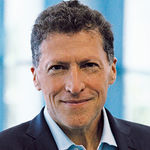
Arnie Weissmann
I'm about two-thirds of the way through Nate Silver's book "On the Edge: The Art of Risking Everything" (Penguin Books, 2024), and it already has me thinking differently about risk and reward in the travel industry.
Silver launched to fame as a political seer in 2016, in part because his FiveThirtyEight forecasting model, seemingly alone, gave presidential candidate Donald Trump a 30% chance of winning the 2016 election when bookmakers universally had the line at 17%.
Less well-known is Silver's career as a professional poker player, which predates that election and first led him to become interested in modeling odds and risk. In poker parlance, the difference between the 17% and 30% reflected, if one had faith in the 30% prediction, significant "expected value." If 30% was correct and 17% wrong, a gambler would have a substantial edge, one that could be quite profitable.
The book has a long section on gambling strategies and casinos, including a deep dive into historical and modern-day Las Vegas. (There's an enlightening interview with Steve Wynn as well as an analysis of why Trump was unable to succeed in Atlantic City.)
"On the Edge" is roughly divided between gaming strategies and Silicon Valley gambles. Silver looks at which personality traits poker players and venture capitalists have in common and where they differ. ("Contrarian" turns out to be a significant area of possible overlap.)
But both types are, in Silver's extended metaphor, denizens of "the River," as opposed to the less risk-tolerant members of society who reside in "the Village."
Businesspeople in the travel industry, from hosted independent contractors to CEOs of cruise lines, take risks to grow their enterprises, and as the scale of investment dollars gets larger based on expected value, so often does risk.
Travel advisors encounter both Riverians and Villagers among their clientele, and I began thinking about the risks that clients take when they book a vacation.
Do not confuse Riverian travelers with those whose businesses involve large risks. Venture capitalists who have made billions in high stakes investments do not necessarily want to climb Mount Everest. Most I've encountered prefer pampering at a Four Seasons when on vacation, willing to spend a small fortune to ensure that everything goes exactly as they want. Unlike at the office, they're spending not to gamble but to avoid risk, wanting to ensure that their leisure time is predictable, not speculative.
I'll be contrarian here. I believe that being risk averse can lower a vacation's expected value, for brands and travelers.
I certainly understand why hotel companies put emphasis on consistency and are guided by RevPAR, ADR and occupancy. Likewise, the majority of consumers appreciate predictability, so are content to stick to familiar brands whose consistent delivery is all but assured.
But recent acquisitions by Hilton (NoMad and Graduate brands) and Hyatt (Standard/Bunkhouse) demonstrate the high appeal and reward that these brands, each of which began with a single property, represent. I'm confident that consumers who booked those unique properties early on realized greater expected value than those who book with an eye to loyalty points.
I speak with experience both as a consumer and investor. As my travel advisor knows, although I end up staying at conference hotels more often than not, I'm very willing to take a chance on interesting independent properties. Those are the memorable stays.
And I invested in what was to become the first property in Bunkhouse's portfolio, the Hotel San Jose in Austin, Texas. Although it was unlike anything that had come before it and was in an area of town that had heretofore been overlooked, it was an overnight success and, more than any other business, drove the revival of the now-popular SoCo neighborhood.
Earlier this week I was speaking with Kremm hospitality consultancy CEO Basak Tan, who likewise perceives that crowd-mentality behavior among hoteliers undermines expected value for both investors and consumers.
"Today, hotels exist in a very different environment than 20, 10 or even five years ago," she said. "There is more of everything: more brands, more confusion, more innovation, more movement, more money, more expectations and more need for authenticity, connection and meaning. Yet we are still seeing financial forecasts based on 'heads in beds.'"
Tan said she believes that when developers decide to create their own brand, they have the freedom to rethink the value and experience framework not only for guests but for the community at large. She feels it's certainly important to pay attention to underlying financial metrics but takes a wider perspective, looking "at the potential of the asset as a whole and what is possible today given design, resources and technology as well as societal, environmental and urban needs."
All of this to say, when you're qualifying clients, you might take a moment to proactively probe for travel Riverians among them. It may be more work to find the perfect stay for them, but they'll certainly come to appreciate the expected value you offer.